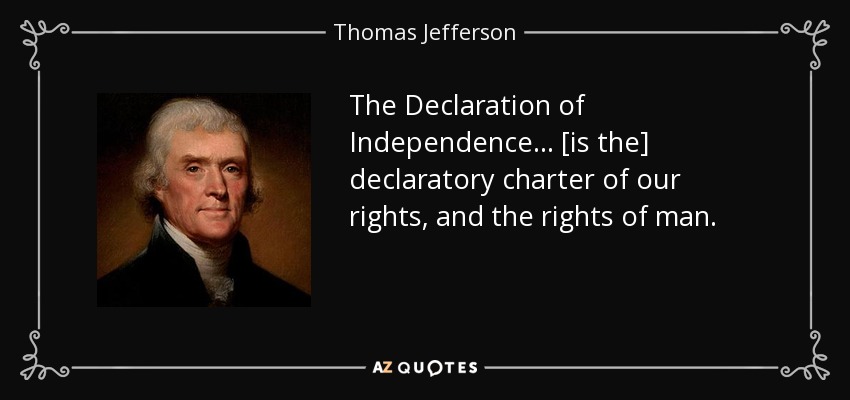

But the job of actually writing the draft fell to Thomas Jefferson, mainly because John Adams and other committee members were busy trying to manage the rapidly escalating war with England. On June 8, 1776, the Continental Congress voted to write a declaration of independence and quickly appointed a committee to draft a formal document. In most cases, these statements detailed British abuses of power and demanded the right of self-government. The Declaration of IndependenceĮven before the Continental Congress declared independence, most colonies along with some towns, counties, and even private organizations had issued their own declarations. Now, almost 100 years later, a formal declaration of independence by the Continental Congress was the only thing standing in the way of a complete break with King George. This led to the so-called Glorious Revolution, which drove James off the throne. In 1688, Parliament had similarly denounced King James II. This was not the first time in English history that such a thing had occurred. In May 1776, the Continental Congress took a fateful step and passed a resolution that attacked King George himself. These actions by the British king and government inflamed Americans who were undecided about independence and made war with England all but certain. Meanwhile, the royal governor of Virginia offered freedom to slaves who joined the British cause. This act allowed the seizing of American ships, justified the burning of colonial towns, and led to sending war ships and troops, including foreign mercenaries, to put down the rebellion. In August 1775, King George issued a proclamation charging that the Americans "had proceeded to open and avowed rebellion." A few months later, Parliament passed a significant act that placed the American colonies outside the king's protection. Neither Parliament nor King George, however, were interested in negotiations to prevent all-out war. Jefferson's Declaration of the Causes and Necessity for Taking Up Arms stopped short of declaring independence, but pointed out the folly of governing the American colonies from England. Even at this late date, the Congress still blamed only Parliament and the king's government ministers, not King George himself, for the growing conflict. Soon after Jefferson arrived in Philadelphia, Congress assigned him to draft a document explaining why the colonists had taken up arms against England. But the "British brethren" refused to do this. Colonists even appealed to the British people, pleading with them to elect different members of Parliament who would be more open to compromise. Even so, most in Congress wanted to work out some mutual agreement with the mother country.įor more than a year, the Americans had sent petitions to England proclaiming their grievances against the British government. Fighting at Lexington, Concord, and Bunker Hill had already broken out between the colonists and British troops. Thomas Jefferson, age 33, arrived in Philadelphia on June 20, 1775, as a Virginia delegate to the Second Continental Congress. Thomas Jefferson, drawing on the current thinking of his time, used natural rights ideas to justify declaring independence from England. The Declaration of Independence and Natural Rights


 0 kommentar(er)
0 kommentar(er)
